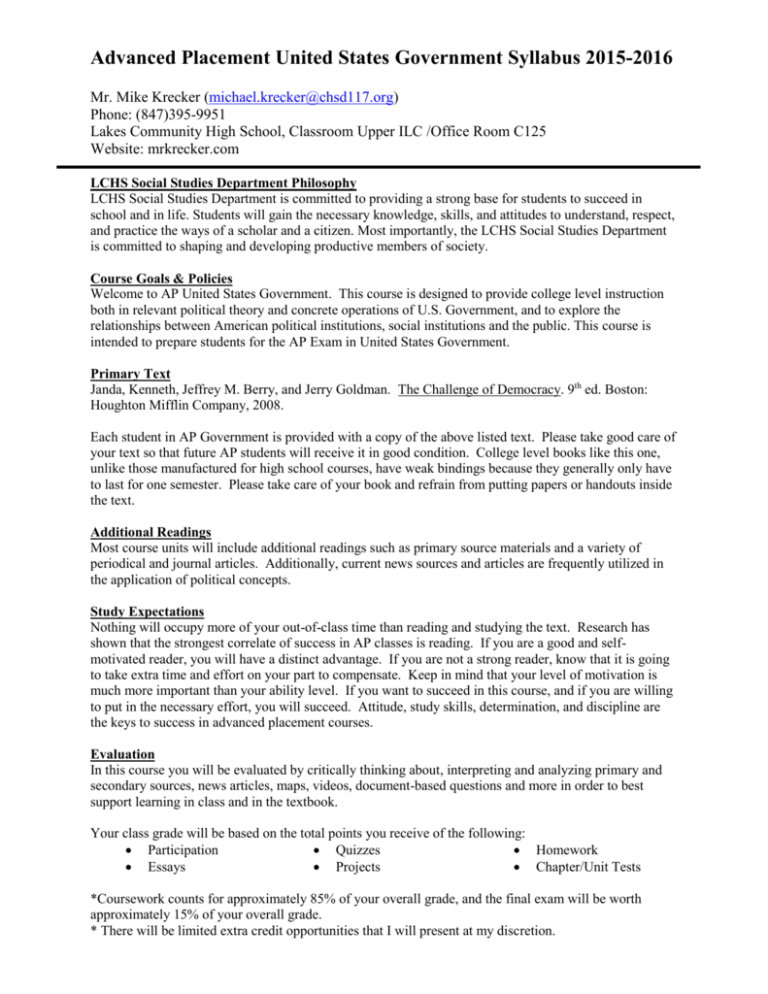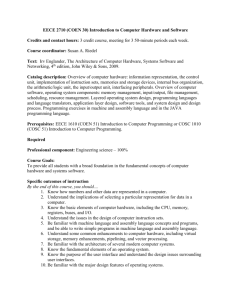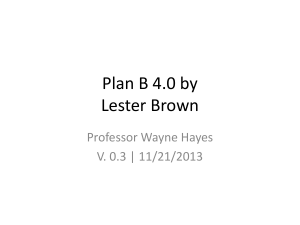
Advanced Placement United States Government Syllabus 2015-2016
Mr. Mike Krecker (michael.krecker@chsd117.org)
Phone: (847)395-9951
Lakes Community High School, Classroom Upper ILC /Office Room C125
Website: mrkrecker.com
LCHS Social Studies Department Philosophy
LCHS Social Studies Department is committed to providing a strong base for students to succeed in
school and in life. Students will gain the necessary knowledge, skills, and attitudes to understand, respect,
and practice the ways of a scholar and a citizen. Most importantly, the LCHS Social Studies Department
is committed to shaping and developing productive members of society.
Course Goals & Policies
Welcome to AP United States Government. This course is designed to provide college level instruction
both in relevant political theory and concrete operations of U.S. Government, and to explore the
relationships between American political institutions, social institutions and the public. This course is
intended to prepare students for the AP Exam in United States Government.
Primary Text
Janda, Kenneth, Jeffrey M. Berry, and Jerry Goldman. The Challenge of Democracy. 9th ed. Boston:
Houghton Mifflin Company, 2008.
Each student in AP Government is provided with a copy of the above listed text. Please take good care of
your text so that future AP students will receive it in good condition. College level books like this one,
unlike those manufactured for high school courses, have weak bindings because they generally only have
to last for one semester. Please take care of your book and refrain from putting papers or handouts inside
the text.
Additional Readings
Most course units will include additional readings such as primary source materials and a variety of
periodical and journal articles. Additionally, current news sources and articles are frequently utilized in
the application of political concepts.
Study Expectations
Nothing will occupy more of your out-of-class time than reading and studying the text. Research has
shown that the strongest correlate of success in AP classes is reading. If you are a good and selfmotivated reader, you will have a distinct advantage. If you are not a strong reader, know that it is going
to take extra time and effort on your part to compensate. Keep in mind that your level of motivation is
much more important than your ability level. If you want to succeed in this course, and if you are willing
to put in the necessary effort, you will succeed. Attitude, study skills, determination, and discipline are
the keys to success in advanced placement courses.
Evaluation
In this course you will be evaluated by critically thinking about, interpreting and analyzing primary and
secondary sources, news articles, maps, videos, document-based questions and more in order to best
support learning in class and in the textbook.
Your class grade will be based on the total points you receive of the following:
Participation
Quizzes
Homework
Essays
Projects
Chapter/Unit Tests
*Coursework counts for approximately 85% of your overall grade, and the final exam will be worth
approximately 15% of your overall grade.
* There will be limited extra credit opportunities that I will present at my discretion.
Late Work Policy
Daily Make-up Work
Students are responsible for obtaining any work missed and making it up in the time allowed (see
LCHS handbook p. 17 for clarification). Once work has been completed please submit it for
grading.
Multi Day/Large Assessment Make up
All assessments need to be made-up. It is the students’ responsibility to schedule a time to
make-up the assessment. Once an appointment/turn in date is scheduled it is the student’s
responsibility to communicate any changes.
Make-up Work - Excused Absences Policy
Students are responsible for obtaining any work missed and making it up in the time allowed (see
LCHS handbook p. 17 for clarification).
Technology
As we all know, technology is not always reliable. You should always save your work in more than one
place, for example, on an electronic storage medium as well as on the system. A problem with
technology will not be an acceptable excuse for not having work completed when it is due. You will have
plenty of time to complete assignments ahead of time. In the case of group projects, all group members
must have access to the project in case of individual absences.
Plagiarism: noun
1.
a piece of writing that has been copied from someone else and is presented as being your own
work
2.
the act of plagiarizing; taking someone’s words or ideas as if they were your own
"plagiarism." WordNet® 3.0. Princeton University. 2 May. 2007. <Dictionary.com
http://dictionary.reference.com/browse/plagiarism>.
It is always unacceptable, on any assignment, to use words or ideas from another source (any other
source, including web sites and other students) as if they were your own. If a student plagiarizes
information in this class, they will receive a zero for the assignment and appropriate disciplinary action.
Plagiarism is a very serious offense. Please consult me if you need help understanding what may or may
not constitute plagiarism.
Academic Dishonesty
Students are expected to maintain academic integrity and to refrain from academic misconduct or from
aiding others in academic misconduct.
Respect
There is only one rule of behavior in this classroom: respect. Each student must show respect to
him/herself, his/her classmates, and his/her teacher. This includes such things as coming to class prepared
and with work completed. Respect also means being polite, allowing others a chance to speak, respecting
our space and available technology, and being kind and tolerant toward others whose viewpoints do not
coincide with your own. If you have any concerns or questions, please talk to me about it. I hope that
you feel comfortable and enjoy the class.
School Policies
2
The LCHS student handbook outlines school wide policies, regulations, procedures, and discipline. All
will be adhered to and upheld in the classroom. For more information on the following, please reference
the pages in the student handbook:
Excessive Absences (p. 16)
Academic Dishonesty / Plagiarism (p. 26)
What Can you Do to Help Yourself?
►
Do not miss class!
►
Do not be afraid to ask for help if you do not understand something. How can you get help?
▻
Ask a classmate
▻
See me before or after school
▻
Arrange to meet me by appointment
▻
Email me at michael.krecker@chsd117.org
►
Complete readings and assignments on time. Set a schedule and be disciplined enough to stick to
it. Be prepared for class every day and review weekly.
►
Take complete, dated class notes. Put notes in your own words. Do not write something down
you do not understand without asking about it. Leave some blank space on each page for additions and
clarifications. It is very important to review your class notes each day while they are fresh in your mind.
Expand them, clarify them, and add examples of your own so that you will be able to make sense of them
when you go back to review. Not all of the materials from the reading will be covered in class so you
should also refer to your text for additional notes.
►
Learn to read more effectively.
▻
Preview a chapter before you begin. Review frequently as you read. Pause at the end of
each section and summarize mentally, in your own words what you have just read.
▻
Do not try to read an entire chapter at once if this is challenging for you. They are
divided into sections for a reason.
▻
Do not ignore pictures, diagrams, tables and sidebars in your text. These not only make
the reading more interesting they clarify concepts in deeper ways. Check your understanding of any
compiled data (graphs, charts, etc.) represented in your text.
▻
Take notes as you read. If you can condense a 30 page chapter to a few pages of good
notes, it is going to be much easier to review.
►
Form a study group. This is an excellent way to help one another and have a good time as well.
►
Half the battle in this course involves vocabulary. I suggest that you create a set of flashcards on
3” x 5” cards. Flashcards offer the following advantages:
▻
The process of creating the cards, if you think about what you are doing will help you to
learn the vocabulary
▻
You can separate the terms you know from those you need to work on more. This makes
for more efficient studying.
▻
They are reversible! You can look at terms and practice the definitions, or you can look
and definitions and practice recalling the terms.
▻
Having a set of flashcards for each chapter provides an excellent means of review for
both class exams and the AP exam.
Course Units and Descriptions
Unit 1: Constitutional Underpinnings of US Government (5-15% of exam; 3 weeks)
Philosophical Traditions & Historical Environment Contributing to Development of US Constitutional
Government
Text Chapters: Janda, Berry, Goldman: Chapters 1, 2, 3, 4
Unit 2: Political Beliefs and Behaviors (10-20% of exam; 2-3 weeks)
Beliefs held by citizens about their government, their leaders, and the political system in general
Text Chapters: Janda, Berry, Goldman: Chapter 5 and 7
3
Unit 3: Political Parties, Interest Groups, and Mass Media (10-20% of exam; 2-3 weeks)
Function, mechanisms, and legitimacy of linkage institutions
Text Chapters: Janda, Berry, Goldman, Chapters 6, 8, 9, 10
Unit 4-6: Institutions of National Government: The Congress, the Presidency, the Bureaucracy, and
the Federal Courts (35-45% of exam; 10-12 weeks)
Structure and function of major institutions of US Government
Text Chapters: Janda, Berry, Goldman, Chapters 11, 12, 13, 14
Unit 5: Public Policy (5-15% of exam; 2-3 weeks)
Domestic and foreign policy development and application
Text Chapters: Janda, Berry, Goldman, Chapters 17, 18, 19, 20
Unit 6: Civil Rights & Civil Liberties (5-15% of exam; 3-4 weeks)
Development and impact of civil rights and liberties through judicial interpretation and subsequent
application
Text Chapters: Janda, Berry, Goldman, Chapters 15, 16
References & Resources
Brudney, K. M., Culver, J. H., & Weber, M. E. (2003). Critical thinking and American government.
Belmont, CA: Thomson Wadsworth.
Edwards, G. C., III, Wattenberg, M. P., & Lineberry, R., L. (2006). Government in America: People,
politics, and policy (12th ed). New York, NY: Pearson Longman.
Emanuel, S. L. (1989). Constitutional law. Larchmont, NY: Emanuel Publishing Corp.
Emanuel, S. L. & Knowles, S. (2000). Criminal procedure. Larchmont, NY: Emanuel Publishing Corp.
Israel, J. H., Kamisar, Y., & LaFave, W. R. (1993) Criminal procedure and the Constitution. St. Paul,
MN: West Publishing Co.
Newport, F., Saad, L., & Moore, D. (1997). How are polls conducted? In Where America stands, 1997,
John Wiley & Sons, Inc., published online at http://media.gallup.com/PDF/FAQ/HowArePolls.pdf
Schmidt, S. W., Shelley, M.C., & Bardes, B.A. (2003). American government and politics today.
Belmont, CA: Thomson Wadsworth.
4
Dear Parent or Guardian,
Please read the attached pages containing the behavioral expectations, grading procedures, and course
content for your child’s social studies class. Once you have reviewed these pages with your child, please
sign and return this form. Feel free to contact your child’s teacher with any questions or comments you
may have.
I, __________________________________ (student’s full name-print), have read and understand the
expectations for AP Government class. I will do my best to follow these expectations.
Student’s Signature______________________________________________Date____________
I, __________________________________ (parent/guardian’s name-print), have read and understand the
expectations for AP Government class. I will do my best to support and guide my student through AP
Government this school year.
Parent/Guardian’s Signature____________________________________ Date_____________
Preferred contact email:_______________________________________
You may also use this page to indicate any questions or comments that you may have. I am especially
interested in hearing your thoughts on how I can best support your child as a learner in my classroom.
______________________________________________________________________________
______________________________________________________________________________
______________________________________________________________________________
______________________________________________________________________________
______________________________________________________________________________
______________________________________________________________________________
______________________________________________________________________________
_____________________________________________________________________________________
_____________________________________________________________________________________
_____________________________________________________________________________________
_____________________________________________________________________________________
__________________________________________________
5
6










